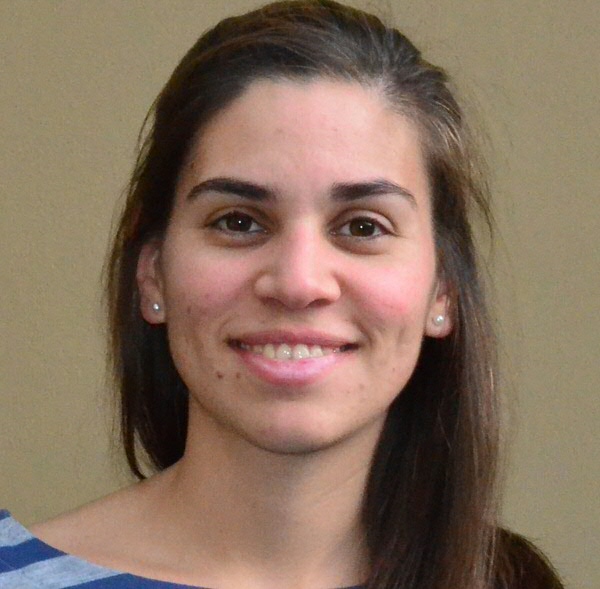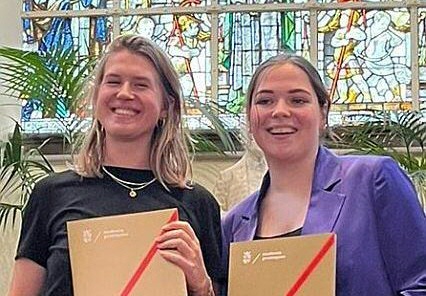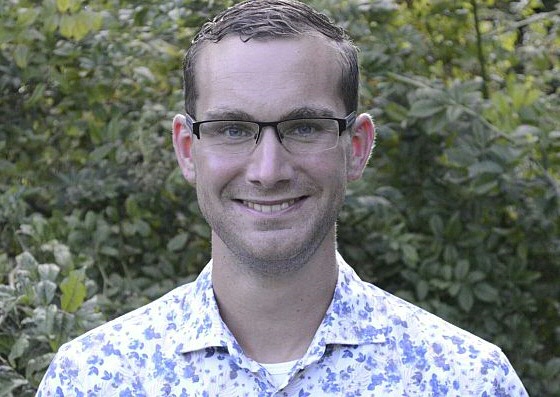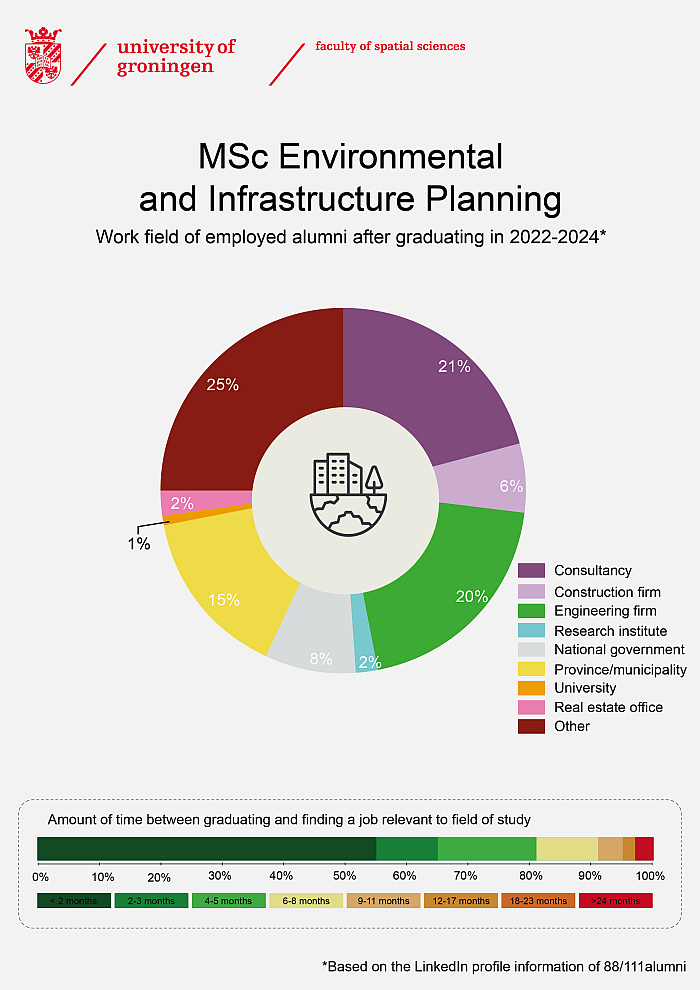
Do you wonder how cities and urban regions can become more sustainable, resilient or carbon neutral? How to design innovative policy solutions for environmental, water, and climate related problems?
Then the international Master's programme in Environmental and Infrastructure Planning (EIP) will fit you well. The programme is unique in integrating: (1) the analysis and development of strategies and governance approaches for highly dynamic and complex planning situations, (2) international comparative research and learning, and (3) environmental, water and infrastructure related challenges. Bringing these elements together, you will examine policy programs, propose planning interventions, and embark on research focused on flood resilient cities, integrated infrastructure solutions, energy transition and healthy urban and regional living environments.
You will be part of an international classroom with students originating from different regions across the globe, some of them having experience in planning practice already. Our dedicated staff will challenge you to rethinking real life planning problems by integrating concepts like self-organization, adaptive capacity and transition management. Through a mix of interactive teaching methods you will strengthen your collaboration and communication skills, and your ability to work and think independently.
If you want to design innovative solutions for sustainable urban development and climate adaptation, we offer a track in Designing Spatial Transformations. If you are looking for a 2 year master, we offer several Dual Degree programmes. You can also integrate EIP within our two year Research Master in Spatial Sciences. Please visit the Spatial Sciences programmes page for more information.
| Semesters | ||||
|---|---|---|---|---|
| CoursesCourse Catalog > | 1a | 1b | 2a | 2b |
| Dilemmas in Infrastructure Planning (5 EC) | ||||
| EIP: Interactive Workshop (5 EC) | ||||
| Planning Theory (5 EC) | ||||
| Comparative Research and Planning Practice (5 EC) | ||||
| Optional course (5 EC) | ||||
| Master's Thesis Environmental and Infrastructure Planning (20 EC) | ||||
| Reinventing Environmental Planning (5 EC) | ||||
| Transitions in Water Management (5 EC) | ||||
| Optional course (5 EC) | ||||
For more information about the courses in this programme, please visit http://www.rug.nl/frw/education/master-info-frw/courses-master-environmental-infrastructure-planning. If you are looking for a 2 year master, we offer several Dual Degree programmes. Please visit https://www.rug.nl/frw/programmes-spatial-sciences to find the programme info.
| Programme options |
|---|
| DDM Development Planning and Infrastructure Management (specialization) Would you like to study topics in Development Planning and Infrastructure Management in two different countries? Then this dual degree is the right choice for you. The Faculty of Spatial Sciences in Groningen and the Department of Urban and Regional Planning in Bandung combine their strengths in this double degree. The course lasts for twenty-four months. You will spend the first twelve months in Indonesia and the second twelve months in the Netherlands.The programme is designed to provide you with the professional capability to deal with planning related activities. You will focus on local as well as central levels in both the developed and the developing world. You will be trained to address spatial problems and to tackle complicated situations in an efficient and effective way. This degree will provide you with the skills to improve and develop infrastructure planning and management in the context of urban and regional development.The curriculum focuses on theories in the field of planning, for example in planning and management of natural resources. In addition, you will be trained to handle decision-making processes. Furthermore, this degree will provide you with the skills to improve and develop infrastructure planning and management in the context of urban and regional development.See the website of the Institut Teknologi Bandung (ITB) for more information or contact us via study.advice.fss rug.nl |
| DDM Sustainable Marine and Coastal Management (specialization) Managing water resources, river catchments, and coastal zones are outstanding challenges of today and tomorrow! Global changes ask for a comprehensive scientific approach, an international multidisciplinary orientation and require a new mind-set towards water and coastal management problems. In response to these challenges and to provide an inspiring atmosphere for the development of an academic and professional career, we designed our unique Dual Degree Master (DDM) programme 'Sustainable Marine and Coastal Management', merging the strongest expertise of the two partner-universities, the University of Groningen (the Netherlands) and Carl-von-Ossietzky-University Oldenburg (Germany).Taught by outstanding experts highly conversant with environmental, socio-economic, and spatial sciences, you will be trained to manage the water and coastal resources of future societies in a sustainable way. The University of Oldenburg gives you the opportunity to learn about the marine environment and sustainable management; the University of Groningen offers its outstanding knowledge on spatial science, in particular water management and environmental and infrastructure planning. The ability to integrate both makes the successful student an expert in sustainable marine and coastal management!More info via the website of the University of Oldenburg |
| Designing Spatial Transformations (track) Are you eager to tackle the spatial challenges of our time? Do you want to design innovative solutions for sustainable urban development and climate adaptation? The Designing Spatial Transformations track in the Master’s programme of Environmental and Infrastructure Planning at the Faculty of Spatial Sciences offers you the tools and knowledge to address complex spatial challenges.What you'll learn* Theoretical and epistemological foundations of spatial design* Advanced design methodologies and collaborative techniques* Integration of design and research in knowledge production* Collaborative design methodology, methods, and techniques* Visualization and communication skills* Critical analysis of current spatial design practicesWhy study this track?Graduates are equipped to design intelligent interventions and co-design proposals with stakeholders, addressing multifaceted challenges in urban and rural settings. You will culminate your studies with a master thesis focused on 'research on design,' 'research for design,' or 'research through design,' showcasing your skills in real-world applications.Join us to become a leader in shaping sustainable cities and landscapes! |
| DDM Sustainable Water Management (specialization) Do you want to study topics sustainable water management in the context of Europe and Southeast Asia? Join our Double Degree Master Sustainable Water Management! The Faculty of Spatial Sciences at the University of Groningen (UG), the Netherlands, and the Department of Geography at Gadjah Mada University (UGM) in Yogyakarta, Indonesia have jointly created a Double Degree Master programme. It combines content from the master Geography (track Planning and Management of Coastal Area and Watershed) at UGM with content from the master Environmental and Infrastructure Planning at UG. Students start their two year programme with a year in Indonesia, followed by a year in the Netherlands.You will learn about geography, management and spatial planning of watersheds, marine & coastal areas and environmental & infrastructure planning, taking into consideration the social context and planning politics. You will learn to solve real-world problems by using acquired skills and techniques.Gadjah Mada University, located in the city of Yogyakarta, is one of the oldest and largest institutions of higher education in Indonesia. The city is home to thousands of students from across the world. Yogyakarta's unique landscape, heritage and culture make it an interesting place for those studying urban planning. In addition, you will enrich your study experience in Groningen, the Netherlands. The University of Groningen is one of the world's leading universities. Learn from the best and take advantage of exciting research opportunities connecting Europe and Southeast Asia. |
| DDM Urban Governance within a Global Environment (specialization) Studying Planning in Beijing enables you to view your own surroundings through new eyes, which gives you a new perspective on how multi faceted urban planning can be in small cities and metropoles. The urban age of our globe is now unfolding, with more than half of the world's population living in cities. Three quarters of the world's urban population are in the Global South, and China plays a critical role in shaping the global trend of urban transformation. In a country with more than 1.3 billion people, 650 cities, and 20,000 towns, the urbanization process has been inducing a series of social, spatial, and economic changes in contemporary China. These transformations in turn foreground a vital challenge for people living in, and moving into, cities: how could we make the urban space more productive, innovative, and inclusive? To address this question, we need to reflect upon theories and practices of urban governance and seek alternative modes that are in line with local and historical-geographical conditions of urban development.The Dual Degree Master in Urban Governance within a Global Environment is a collaboration between the Faculty of Spatial Sciences of the University of Groningen, the Netherlands, and the School of Public Administration and Policy of the Renmin University of China in Beijing. It combines the expertise of the Department of Spatial Planning and Environment in Groningen and of the number 1 university in China in the field of public administration.Renmin University of China is a research-oriented key university with outstanding advantages in the fields such as economics, sociology, law and management. |
| DDM Urban Planning, Environment and Infrastructure (specialization) Do you want to study topics in urban planning, environment and infrastructure in the context of Europe and Southeast Asia? Join our Dual Degree Master in Urban Planning, Environment and Infrastructure!.The Faculty of Spatial Sciences at the University of Groningen (UG), the Netherlands, and the Department of Architecture and Planning at Gadjah Mada University (UGM) in Yogyakarta, Indonesia have jointly created a Dual Degree Master programme. It combines content from the master Urban and Regional Planning at UGM with content from the master Environmental and Infrastructure Planning at UG. Students start their two year programme with a year in Indonesia, followed by a year in the Netherlands.You will learn about urban theories, spatial methods, smart governance, water management and apply your knowledge in urban planning and design studios at different scales, taking into consideration the social context and planning politics. You will learn to solve real-world problems by using acquired skills and techniques.Gadjah Mada University, located in the city of Yogyakarta, is one of the oldest and largest institutions of higher education in Indonesia. The city is home to thousands of students from across the world. Yogyakarta's unique landscape, heritage and culture make it an interesting place for those studying urban planning. In addition, you will enrich your study experience in Groningen, the Netherlands. The University of Groningen is one of the world's leading universities. Learn from the best and take advantage of exciting research opportunities connecting Europe and Southeast Asia. |
| Specific requirements | More information |
|---|---|
| previous education |
Holders of a certificate from the Bachelor's degree programme in Human Geography and Planning (Sociale Geografie & Planologie) or Spatial Planning and Design from a Dutch university are assumed to have sufficient knowledge and skills and will also be admitted to the degree programme on that basis. Admission is also possible for students that have completed the 1st year of a related Dual Degree programme at the partner university. We offer a pre-master programme for students who are not directly admissible to this master. For admission requirements of the pre-master see: https://www.rug.nl/frw/education/pre-master/ |
| additional subject |
In order to asses you previous education the Admissions Board requires course descriptions. |
| language test |
English on VWO level or one of the following equivalents:
Overall: 90 Reading: 18 Listening: 18 Speaking: 20 Writing: 21
A prospective student can always apply for an exemption from the English language test. The student needs to explain, and if required show proof of, why an exemption would be justified. It is up to the Admission Board to decide whether an exemption will be granted or not. |
| Study programme | Organization | Transition |
|---|---|---|
| All Universities of applied sciences |
Via a pre-master More information:For more information about the pre-master please see https://www.rug.nl/frw/education/pre-master/ |
| Study programme | Organization | Transition |
|---|---|---|
| Liberal Arts and Sciences | All Research universities |
Additional requirements More information:Contact study.advice.fss rug.nl for information about your admission |
| International Land and Water Management | All Research universities | No additional requirements |
| Spatial Planning and Design | All Research universities | No additional requirements |
| Landscape Architecture and Planning | All Research universities | No additional requirements |
| Human Geography and Planning | All Research universities |
No additional requirements More information:Advice: for your electives choose courses of the bachelor Spatial Planning and Design |
| Type of student | Deadline | Start course |
|---|---|---|
| Dutch students | 15 August 2026 | 01 September 2026 |
| 15 January 2027 | 01 February 2027 | |
| 15 August 2027 | 01 September 2027 | |
| EU/EEA students | 01 May 2026 | 01 September 2026 |
| 01 November 2026 | 01 February 2027 | |
| 01 May 2027 | 01 September 2027 | |
| 01 November 2027 | 01 February 2028 | |
| non-EU/EEA students | 01 May 2026 | 01 September 2026 |
| 01 November 2026 | 01 February 2027 | |
| 01 May 2027 | 01 September 2027 | |
| 01 November 2027 | 01 February 2028 |
If you are considering applying for a start in February, please know that this has practical implications for your studies. We advise a start in September as the programme is better suited for a September start. Before applying for a February start in our programme and paying the application fee for students with a foreign diploma, we advise you to discuss your application with one of our Study Advisors (study.advice.fss rug.nl)
| Specific requirements | More information |
|---|---|
| previous education |
Research university bachelor degree in spatial planning and design, land use planning, urban planning and design, landscape architecture, urbanism, urban/regional planning/development, environmental management, public administration with basic knowledge of spatial planning; Basic design skills (for the track 'Designing Spatial Transformations' only) If you are not directly admissible you can follow a pre-master programme. See more information in the pre-master guide: https://www.rug.nl/frw/education/pre-master/ |
| additional subject |
In order to asses you previous education the Admissions Board requires course descriptions. |
| language test |
English on VWO level or one of the following equivalents:
Overall: 90 Reading: 18 Listening: 18 Speaking: 20 Writing: 21
A prospective student can always apply for an exemption from the English language test. The student needs to explain, and if required show proof of, why an exemption would be justified. It is up to the Admission Board to decide whether an exemption will be granted or not. |
| Type of student | Deadline | Start course |
|---|---|---|
| Dutch students | 15 August 2026 | 01 September 2026 |
| 15 January 2027 | 01 February 2027 | |
| 15 August 2027 | 01 September 2027 | |
| EU/EEA students | 01 May 2026 | 01 September 2026 |
| 01 November 2026 | 01 February 2027 | |
| 01 May 2027 | 01 September 2027 | |
| 01 November 2027 | 01 February 2028 | |
| non-EU/EEA students | 01 May 2026 | 01 September 2026 |
| 01 November 2026 | 01 February 2027 | |
| 01 May 2027 | 01 September 2027 | |
| 01 November 2027 | 01 February 2028 |
If you are considering applying for a start in February, please know that this has practical implications for your studies. We advise a start in September as the programme is better suited for a September start. Before applying for a February start in our programme and paying the application fee for students with a foreign diploma, we advise you to discuss your application with one of our Study Advisors (study.advice.fss rug.nl)
| Nationality | Year | Fee | Programme form |
|---|---|---|---|
| EU/EEA | 2025-2026 | € 2601 | full-time |
| non-EU/EEA | 2025-2026 | € 21400 | full-time |
| EU/EEA | 2026-2027 | € 2695 | full-time |
| non-EU/EEA | 2026-2027 | € 22200 | full-time |
Scholarships: Check the Nuffic website for information about scholarships.
Students are expected to follow our Bring Your Own Device (BYOD) policy. For more detailed information about laptop requirements, please visit this webpagePractical information for:
The Master opens up a wide field of potential careers in both the public domain and the private sectors. Our graduates:
How we boost your future career
We support you in developing a rich set of tools as well as a reflexive attitude that allows you to create innovative solutions for sustainability and resilience of cities and regions. We do so in various ways:
Throughout the year we offer support for practical career preparation and employability skills. Workshops are given about leadership, job interviews and how to present yourself. More information about the FSS Career Services.
See where our alumni end up in this infographic
Spatial Sciences at the University of Groningen has a strong
academic position, nationally and internationally, and is
well-embedded in a wider range of disciplines, such as social
sciences and technology sciences. Its relevance is in addressing
spatial aspects of the key societal challenges and emerging
technological transitions of today.
Our research programme is titled TRACE (TRAnsformations, Communities
and Environments). Our ambition is to create scientific and
societal impact by undertaking cutting-edge research at the
interface of people, places, and planning in rural and urban
settings, especially at local and regional scales, in the
Netherlands, Europe and globally.
Examples of research projects related to EIP
‘Playing with Urban Complexity’ – Dr. Ir. Katherina Gugerell
This research project aims to foster the understanding of complex urban problems by combining participatory processes with serious games in a co-located setting. In particular, the project seeks to explore how game mechanics can be used to engage the actor group of young adults to make informed decisions that have an impact on their respective urban carbon footprints.
‘INTENSSS-PA’ – Christian Zuidema
The INTENSSS-PA project is a EU funded Horizon 2020 project that studies the integration of sustainable energy measures, land uses and technologies within the spatial and socio economic landscape. It is focused on the process of institutional innovation needed for developing integrated sustainable energy plans.
‘SMART Campus Zernike Groningen’ – Dr. Elen-Maarja Trell
A research project carried out in collaboration with RIO projects and the Municipality of Groningen with support from Regio Groningen Assen and Zernike Campus.
Overview of publications and other activities
Research database Faculty of Spatial Sciences
Overview staff Department of Spatial Planning and Environment
Sustainable Road Infrastructure publications
ResearchGate Department of Spatial Planning and Environment

The Master's in Environmental and Infrastructure Planning is a challenging and motivating program for planners who, like myself, aim to contribute towards creating better places to live in, hence, more habitable and sustainable cities. Moreover, it encompasses accurate planning concepts, tools and knowledge to solve the many difficulties our cities experience.
I was captivated by the passion by which the professors educate the students, and in the way they develop an increased interest and understanding in different aspects of urban planning. Being a RUG student, I have broadened my knowledge and skills as a planner. In particular, I have realized the importance of holistic bottom-up approaches, involving all the parties linked to a program or project, who stand to be affected either in a positive or negative way.
Personally, I have enjoyed my stay in Groningen and I met amazing people. My Master’s degree in Environmental and Infrastructure Planning has definitely opened many doors within the working environment of my city.
- Mariá Costanza Almeida

In the summer of 2021, I finished my bachelor's degree in Spatial Planning and Design at the Faculty of Spatial Sciences. While I started out the bachelor with a great interest in the design-element of it, I ended up graduating with an even greater interest in the policymaking-element of spatial planning.
During the bachelor, the focus subjects concerned water management, environmental issues and mobility & infrastructure. I very much enjoyed these subjects, and together with my interest in policymaking, the Environmental and Infrastructure Planning master felt like a good match. And so, I started with my master’s degree in September of 2021.
Environmental and Infrastructure Planning is a great program for those who are interested in sustainability, the energy transition, and their impacts on the living environment. The courses in the program provide a good mix of content-related courses (such as Reinventing Environmental Planning) and research-related courses (such as Comparative Research and Planning Practice). The program involves a great deal of group projects, that help you figure out your role while working in teams. Also, the program offers the freedom to focus your projects and reading materials on the subjects that you find most interesting.
During the Graduate Research Day where I presented my thesis, I encountered an alumnus of the faculty, who has introduced me to the job I am doing now. I now work for a public transport authority as a policy advisor on public transport development. My goal is to encourage people to choose more sustainable modes of transport!
- Tess ten Have

The motivation why I choose for the masters Environmental & Infrastructure Planning (EIP) and Society, Sustainability and Planning (SSP) was to understand and counteract the, in my view, planning and design processes that enforce personal examples of injustice and inequality in the spatial domain. I am interested in giving all actors a voice and the instruments or tools to make the physical environment better for its users.
The different courses of the masters taught me different theoretical and practical lenses of which I am still grateful of and apply in my personal and working life.
At the moment I work as a consultant Smart Cities & Smart Mobility for the Dutch Ministry of Infrastructure and Water Management. What is interesting is that I am most of the time busy with making connections between people and programme’s. I believe that both masters enabled me to do so because you get to know how the process of spatial planning works and you are aware of the content with in-depth knowledge about sustainability, planning and stakeholder involvement. This may seem a bit odd, but in my experience it appears to be a critical power and unique selling point. Most of my colleagues do not have such a background and are not always fully informed about the spatial consequences of their actions. A glimpse of programme’s I work on: 5G-Blueprint, a public-private ecosystem for smart and sustainable urban development and the Dutch National Mobility Vision 2050.
Besides, I started right after my master the company VRX which specialises in using (Immersive) Virtual Reality (IVR) for co-creative spatial planning and design. VRX produces virtual environments where citizens can experience how for instance a playground can look like based on different scenario’s. During design sessions with IVR we ask them to give their view on the scenario’s so we are able to improve the scenario’s while working towards a final design.
The important thing about both masters is that they provide you with a fruitful and professional knowledge base. After you finish your master you can work in different working fields, for different organisations and connect them to each other (energy, water, transport, housing, nature). I hope my personal experience after study and two years working underlines this and provides an (prospective) example for people interested in either or both masters.
- Roy Boertien

This infographic shows in which workfield alumni of the master's programme ended up, and is based on alumni who graduated between 2022 and 2024. As is visible, the majority of the alumni have found a job relevant to their field of study within 6 months since graduating.